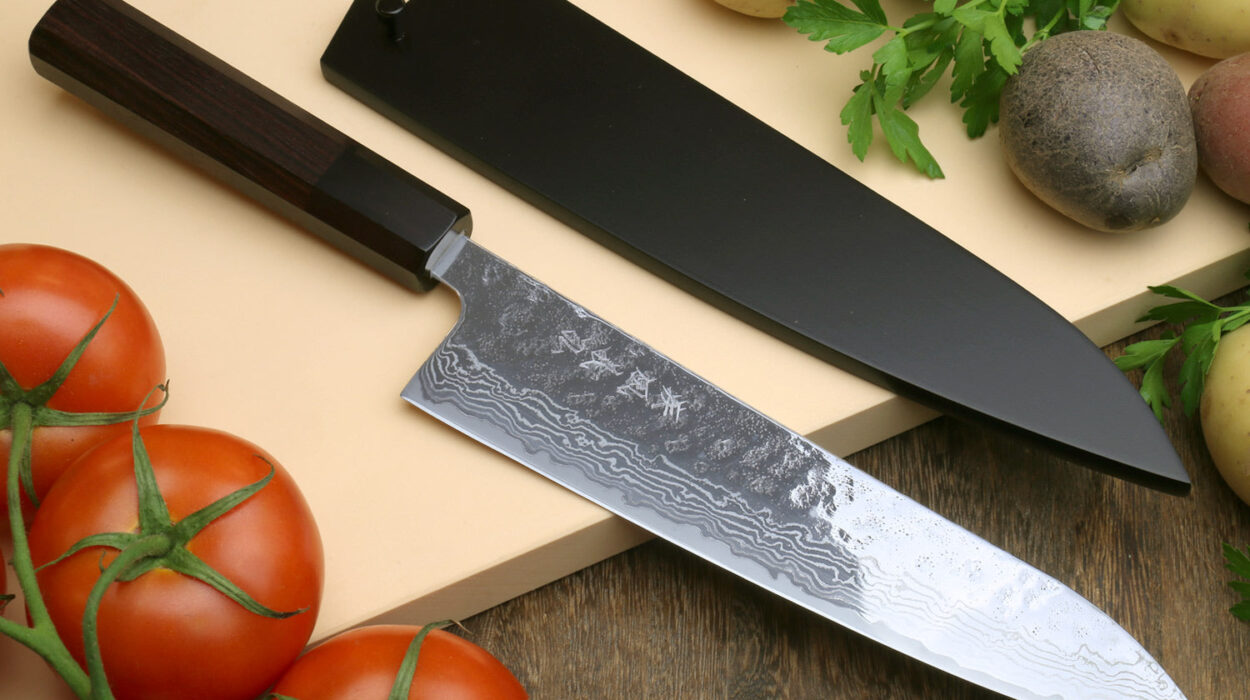Choosing the best steel for Damascus kitchen knives is crucial for both professional chefs and home cooks. The right steel not only enhances the beauty of the knife but also improves its performance in the kitchen. In this article, we will dive deep into understanding the top choices available and what makes them ideal for creating Damascus knives.

What is Damascus Steel?
Damascus steel is renowned for its distinctive patterns, resembling flowing water or the intricate swirls of a fingerprint. It is a composite material made by forging together two or more types of steel, creating layers that are later etched to highlight the complex designs. This method not only produces a visually stunning blade but also one that is strong and flexible.
The History Behind the Elegance
The history of Damascus steel dates back to ancient times, originating from the Near East. Historically, it was known for its durability and ability to hold a sharp edge. Today, chefs and collectors alike appreciate it for both its aesthetic appeal and functional performance in the kitchen.
Options for Best Steel for Damascus Kitchen Knives
Identifying the ideal steel for crafting Damascus knives involves understanding both performance and aesthetic preferences. Let’s explore some of the best choices:
1. VG-10 Steel
VG-10 steel originates from Japan and is well-regarded in the knife-making industry. Known for its exceptional durability and edge retention, VG-10 is often used in professional-grade knives. The alloy contains carbon, chromium, cobalt, manganese, and molybdenum, contributing to its strength and corrosion resistance.
2. 1095 High Carbon Steel
Popular among traditional knife makers, 1095 high carbon steel is praised for its ability to be sharpened to a razor edge. While it requires regular maintenance to prevent rust, its toughness and ease of sharpening make it a favorite for many. This steel is often used in custom Damascus knives tailored for chefs.
3. 15N20 Steel
Combined with 1095 steel, 15N20 creates an exquisite contrast in Damascus blades. It is a high-nickel alloy, contributing to brighter steel, making the patterns more noticeable. This pairing results in blades that not only perform well but also stand out visually.
Properties to Consider
When selecting steel for Damascus kitchen knives, several essential properties should be considered:
Hardness
Measured in the Rockwell scale, the hardness affects the blade’s edge retention and durability. A higher Rockwell number typically means a tougher, longer-lasting edge.
Edge Retention
The ability of the blade to maintain a sharp edge through extensive use is crucial in kitchen environments where precision and reliability are paramount.
Corrosion Resistance
Essential for maintaining the blade’s integrity and appearance, especially in damper kitchen environments. Look for stainless steel alloys or those with protective coatings for best results.
Toughness
This refers to the steel’s ability to withstand impacts and resist cracking or chipping, an important consideration for kitchen knives that undergo frequent use and occasional mishandling.
Summary
In summary, selecting the best steel for Damascus kitchen knives requires a balance between aesthetic appeal and performance properties such as toughness, hardness, and corrosion resistance. Additionally, maintenance practices, such as regular sharpening and cleaning, play a significant role in ensuring the longevity and effectiveness of the knife. For more guidance on maintaining these exquisite tools, visit the maintenance section on knife care.

FAQs
What makes Damascus steel unique?
Damascus steel is unique due to its distinct wavy patterns created by folding and forging multiple layers of steel together, resulting in a blade that is both beautiful and strong.
Why do chefs prefer VG-10 steel?
Chefs prefer VG-10 steel for its exceptional edge retention, durability, and resistance to corrosion, making it ideal for demanding kitchen environments.
How do I maintain a Damascus steel knife?
To maintain a Damascus steel knife, regularly sharpen it, clean and dry it thoroughly after each use, and store it in a dry place to prevent rust.
This article contains affiliate links. We may earn a commission at no extra cost to you.


